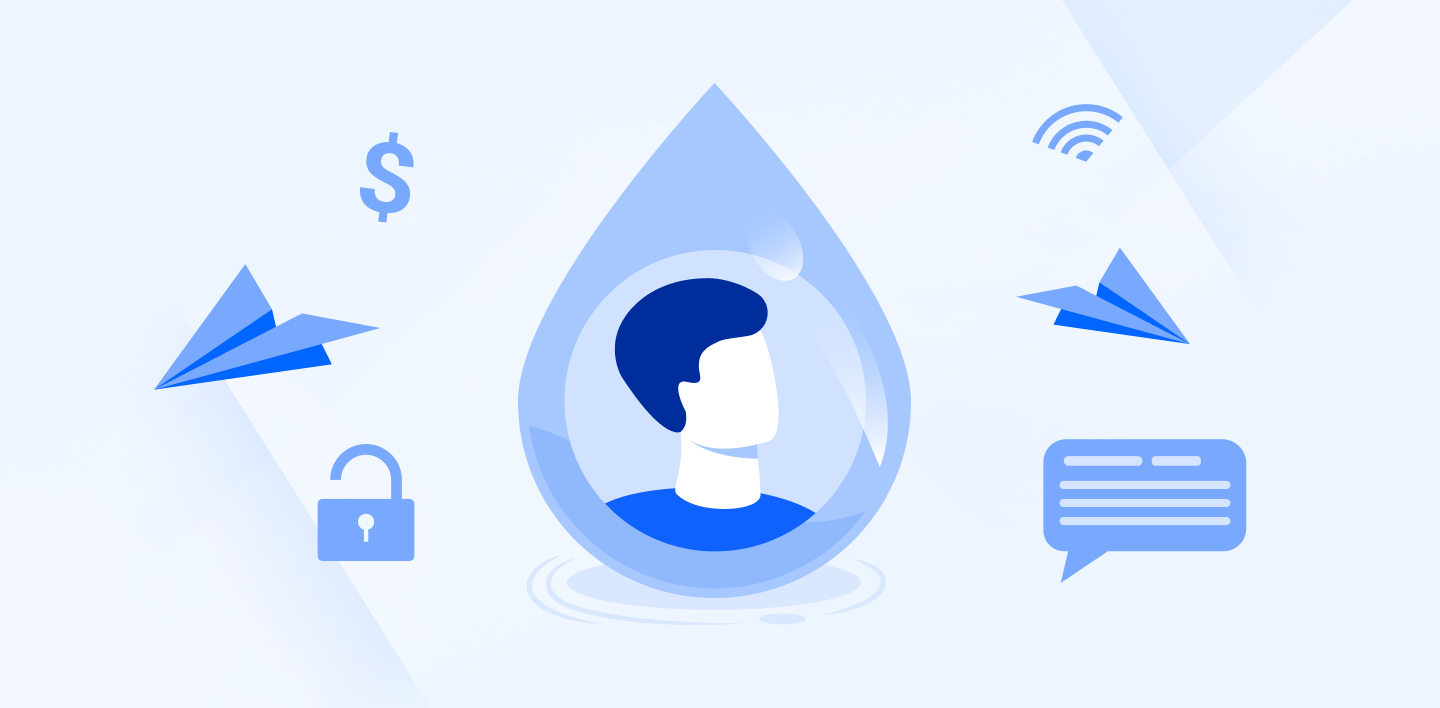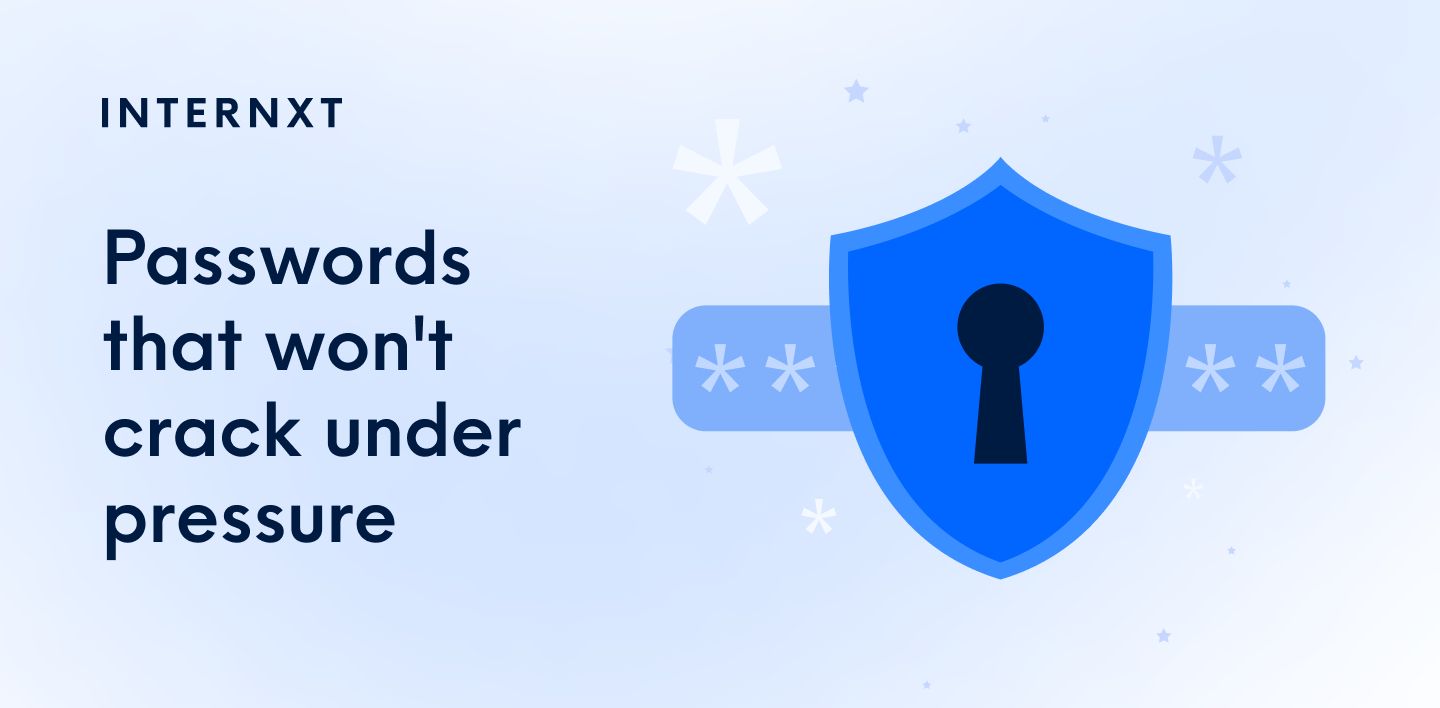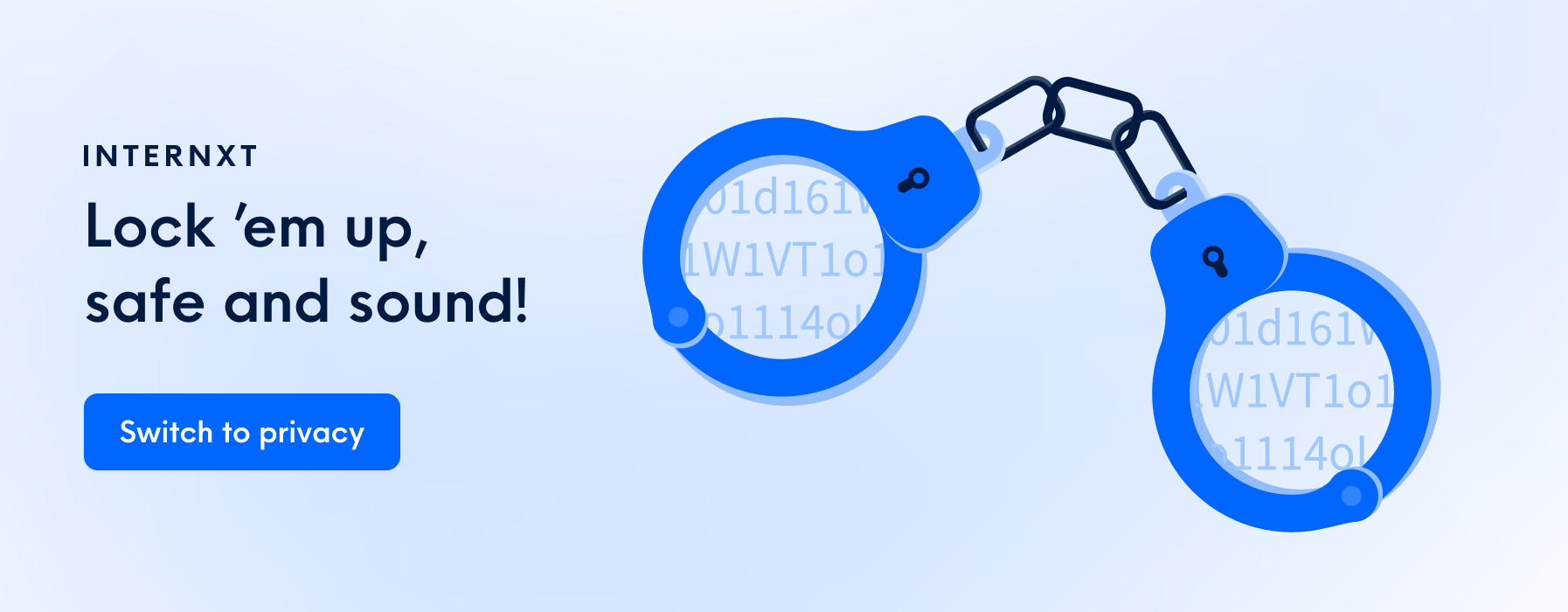How To Find Out If Your Information Is Leaked Online And What To Do About It

In today's digital age, it's becoming increasingly common for personal information to be leaked online. With the growing number of data breaches and hacking incidents, protecting your personal information is crucial.
But how can you tell if your information has been compromised in a data breach? And what should you do if you find out that it has? This article will give tips on checking if your personal information has been exposed online and what actions they should take during a data breach.
It will also explain a data breach, highlight some of the most significant data breaches in recent history, and offer advice on protecting yourself from future incidents. Following these guidelines, you can better safeguard your personal information and prevent identity theft or fraud.
Why Check Personal Information For Leaks?
While skimming news headlines, you might have asked yourself, “Has my information been leaked?” With privacy concerns and data privacy laws becoming increasingly important, staying up-to-date on any potential security breaches that may have compromised your personal information is crucial.
Social engineering attacks are on the rise, and cybercriminals often use phishing scams to access sensitive information such as passwords or credit card details. Thankfully, easy-to-use tools are available to help you identify whether or not your data has been exposed.
How to Check if Your Personal Information is Leaked?
To ensure personal information is secure, you should regularly check if your data has been compromised in any data breaches.
Here are a few tools we discovered that have been helpful.
Have I Been Pwned?
Boasting one of the largest breach databases on the internet, with Have I Been Pwned, you can check if your personal information has been exposed to a data breach using their quick email search.
It collects and analyzes data from security breaches, internet leaks, and other cyber threats. By searching their database, you can find out whether or not any of your personal information has been stolen or accessed without your permission.
In addition to providing information about potential security breaches, Have I Been Pwned? also offers a way to notify yourself via email for future data breaches that compromise your specific email address.
To check if your email was leaked or collected in a security hack, simply type your email and press the “pwned?” Button on the right. If your email is compromised, you’ll see a red message with tips on better securing your email and a list of breached services that put your email at risk.
Firefox Monitor
With Firefox Monitor, you can also determine whether a data breach has impacted you with just your email. With a primary focus on user security and privacy, this tool continuously monitors for new breaches and promptly alerts subscribers if their personal information has been compromised.
Known for its commitment to privacy and security, Mozilla launched this service that searches for data breaches from 2007 onward.
By collaborating with "Have I Been Pwned," Firefox Monitor strengthens its breach data sources and provides users with a reliable and trusted platform to protect their data on the internet.
CyberNews — Personal Data Leak Check
Besides keeping up with the latest tech news, CyberNews has its data leak checker. As with the other options, simply supply your email, and click the green “Check Now” button to see the results.
Our research found that using multiple checkers occasionally uncovers different results in the breach data. Specifically, we discovered another website in one of the checkers that previous scans had failed to detect.
Similarly, if you see the same website referencing a data leak, you can have more confidence that these tools work.
Now that you have a few tools at your disposal let’s dive deeper into understanding what a data breach is.
What Is A Data Breach?
A data breach occurs when sensitive information is accessed, stolen, or viewed by an unauthorized person. It can happen due to security vulnerabilities in computer systems or human errors, such as misplaced devices containing sensitive information.
Data breaches often involve personally identifiable information such as social security numbers, credit card details, and email addresses. The results of a breach can include financial loss, identity theft, or damage to the brand.
To prevent data breaches from happening in the first place, companies should have a comprehensive data loss prevention plan (DLP), which includes implementing proper security protocols and training employees on best practices for handling sensitive information.
In case of a data breach happening despite all preventive measures, having a well-thought-out response plan that includes promptly notifying affected parties is crucial. Organizations generally must inform individuals whose PII has been compromised during a security incident, as data breach notification laws vary depending on the jurisdiction.
Businesses can also consider getting data breach insurance to mitigate the financial risk associated with managing the aftermath of a cyber-attack or similar incidents.
How to Protect Yourself and Your Data Online
There are also a few useful tools that you can use online to help protect your data online and increase the overall security of your online presence; here are a few we have collected to help you.
Use Temporary or Alternative Account Information
When filling out required fields online, consider using a separate email address to avoid exposing your email address when signing up for services. Alternatively, you can find temporary email services or sign up for a more secure free email.
When filling out an address field, simply don’t provide an actual address or omit the unit number. Unless you are shipping a physical item to your unit, there is no business need for a company to have your full address.
Even when you shop online with a credit card, you rarely need to add your unit number. Credit card companies do not cross reference at this level of detail; you can still purchase digital items without the unit number. Physical goods, of course, will need your full address to arrive.
Similarly, with phone numbers, unless you want to be contacted by phone, this is often information that is unnecessary to give out. Why does a business need your phone number to provide a replay of a webinar?
Create A Strong Password
Strong passwords are the foundation of any security strategy. Adding your login credentials to a password manager is the best way to store passwords securely.
While there is a bit of a learning curve if you’ve never used password managers, it is worth the extra effort.
You can even use convenient features like Face ID to retrieve passwords easily. There is no need to create passwords or even remember them again.
If your information is hacked, you can have peace of mind knowing they won’t have access to your other services because you don’t repeat your passwords.
Strong passwords include 8–12 characters that use upper and lower case, plus numbers and at least one or more special characters. For quick and secure passwords, you can use a strong password generator to secure your accounts.

Be Smart About Using Your Information Online And Offline
When browsing the web, you must be smart about where you input your personal information, such as credit card numbers and addresses. One way to ensure your information is secure is to use HTTPS-protected websites. These websites encrypt all data exchanged between you and the website, making it much more difficult for hackers to intercept and steal your information.
Additionally, it's crucial to be mindful of offline safety measures. For instance, while social media can be an excellent tool for staying connected with friends and family, sharing too much personal information online can put you at risk of identity theft or other crimes.
Furthermore, using public Wi-Fi networks without protection from a trustworthy VPN can compromise your privacy by allowing hackers access to your device or stealing passwords.
To protect yourself further, consider securing your login using two-factor authentication and enabling biometric data protection on all devices with this feature available.
What Are Some Famous Data Breaches?
Even the biggest companies are not safe; here are some famous instances of when these companies fell victim to data breaches.
Yahoo
In 2013, Yahoo announced that three billion user accounts were compromised in a breach three years prior. The stolen information included users' names, email addresses, dates of birth, and security questions and answers but did not include bank account, payment card, or clear-text password data. This breach ultimately cost Yahoo $350 million of its original offer price from Verizon.
In June 2021, LinkedIn was subjected to a security breach affecting 700 million users, accounting for more than 90% of its user base. A hacker under the pseudonym "God User" applied data scraping tactics by manipulating the site's API and others.
LinkedIn contends that the cybercriminals didn’t directly scrap the data from its platform but collected from publicly accessible information on a large scale.
Interestingly, the price quoted for this vast data compilation stands at $5,000. The company's spokesperson refutes allegations that the data is recent or originated from 2020 or 2021, citing the absence of any corroborating evidence.
Sina Weibo
With a considerable user base of over 600 million, Sina Weibo is one of China's primary social media platforms. In March 2020, the platform reported a security incident, stating that an unauthorized party had accessed a section of its database. This event affected around 538 million Weibo users, with data including real names, site usernames, gender, location, and phone numbers being compromised. This data was later discovered for sale on the dark web, priced at $250.
Marriott International
In September 2018, Marriott International confirmed a significant data breach that exposed sensitive details for approximately 500,000 Starwood guests. The company was alerted to the breach when an internal security tool detected unauthorized attempts to access the Starwood guest reservation database.
An investigation revealed that this unauthorized access had begun in 2014, leading to the copying, encryption, and subsequent removal of various guest information. This information spanned from personal details, such as names, addresses, and phone numbers, to encrypted payment card information.
Post-breach, Marriott initiated an investigation and announced plans to phase out Starwood systems and enhance security measures on its network. Unfortunately, the fallout included an £18.4 million fine from the UK's Information Commissioner's Office (ICO) for failing to protect customers' data adequately.
A New York Times article linked the cyberattack to a Chinese intelligence group, further underlining the wide-ranging implications of such breaches on businesses and national security. The incident underscored corporations' importance in prioritizing cybersecurity measures to guard against evolving threats.
What to Do if Your Data Is Compromised
The first step is to assess the extent of the breach by reviewing what data has been exposed to determine which accounts or services are affected and show you how much damage control is needed.
After reviewing the exposed data, it's essential to change all account passwords immediately. Use strong and unique passwords for each account, and avoid using similar or easily guessable ones. Two-factor authentication should also be set up wherever possible as an extra layer of security.
Data breach victims should also report the incident to authorities and credit agencies immediately.
Finally, it's crucial to prevent future breaches such as regularly updating software, avoiding phishing scams, and being cautious with personal information online.
Analyze the Risks of the Platforms You Use
You may not realize it, but you risk being a data breach victim as a user of various online services and platforms. The potential risks of a data breach include identity theft, financial fraud, reputational damage, and loss of sensitive personal information.
Anyone using the internet can be affected by a data breach, regardless of age or occupation. Regular risk assessments are crucial to limit the chances of being affected by a data breach.
These risk assessments should include reviewing your social media privacy and the privacy settings of other accounts to ensure you are only sharing necessary information with others.
Users should also be cautious about their online presence and avoid publicly sharing too much personal information. Finally, protecting sensitive information by using strong passwords and regularly changing them can help prevent multiple breaches if one account is compromised.
Take Legal Action
Legal recourse can include pursuing the offender under applicable privacy laws if personal information has been leaked online. Victims of identity theft may also consider cybersecurity insurance.
Protect Your Financial Information
You can use fraud detection and credit monitoring services to determine if financial information has been compromised in a data breach. They can also implement identity theft prevention, cybersecurity measures, and online privacy protection.
Update Your Privacy Settings
To prevent personal information from being leaked online, you can take protective measures such as adjusting privacy settings, using cybersecurity software, practicing safe browsing habits, and implementing identity theft prevention tactics.
Report a Data Breach
To report a data breach, individuals should follow the reporting process outlined by their organization and/or relevant data privacy laws. Failure to do so can result in potential consequences. Expert advice suggests prevention tips such as implementing strong passwords and two-factor authentication.
What Measures Can Companies Take To Prevent Data Breaches?
Companies and their employees can prevent data breaches by implementing proper cyber hygiene habits that focus on the following:
- employee training
- encryption protocols
- regular security audits
- incident response planning
These measures help to secure sensitive information and protect against cyber threats.

Taking The Next Steps for Your Online Safety
It's essential to be vigilant when protecting your personal information online. With the increasing number of data breaches happening worldwide, it's crucial to take steps toward safeguarding your identity and sensitive information.
Regularly monitoring your accounts, using strong passwords, and being cautious of suspicious emails or websites can reduce the risk of falling victim to cybercrime.
If you suspect that your personal information has been exposed to a data breach, there are several steps you can take. These include contacting the affected company or organization, freezing your credit report, and monitoring your accounts for any unusual activity.
Taking these precautions and staying informed about potential threats online can help keep yourself and your personal information safe from harm.

